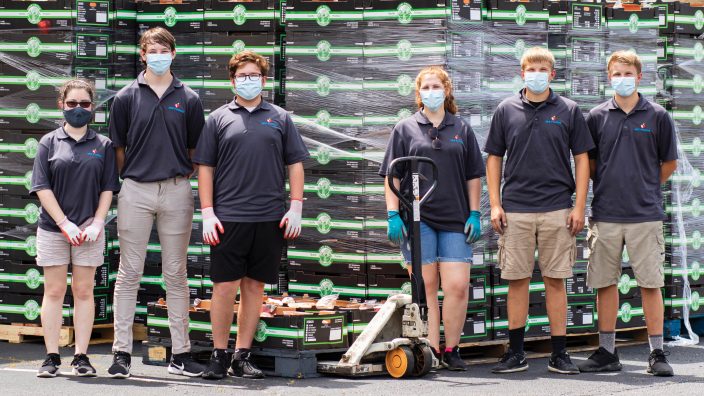Applications for Ohio Farm Bureau Health Plans now available
Members have three ways to apply: contacting a certified agent, calling 833-468-4280 or visiting ohiofarmbureauhealthplans.org.
Read MoreThe United Nations’ challenge to a Cincinnati-area high school class was grandiose: Come up with a way to end hunger and poverty in the world.
But instead of dismissing the challenge as impossible, teacher Tom O’Neill’s information technology students at Butler Tech-Ross High School decided to chip away at the problem by creating JEE Foods, a nonprofit business that rescues unused food and distributes it to the hungry.
“We thought we could make something so good out of this that we would have regretted not acting on it,” said Michael R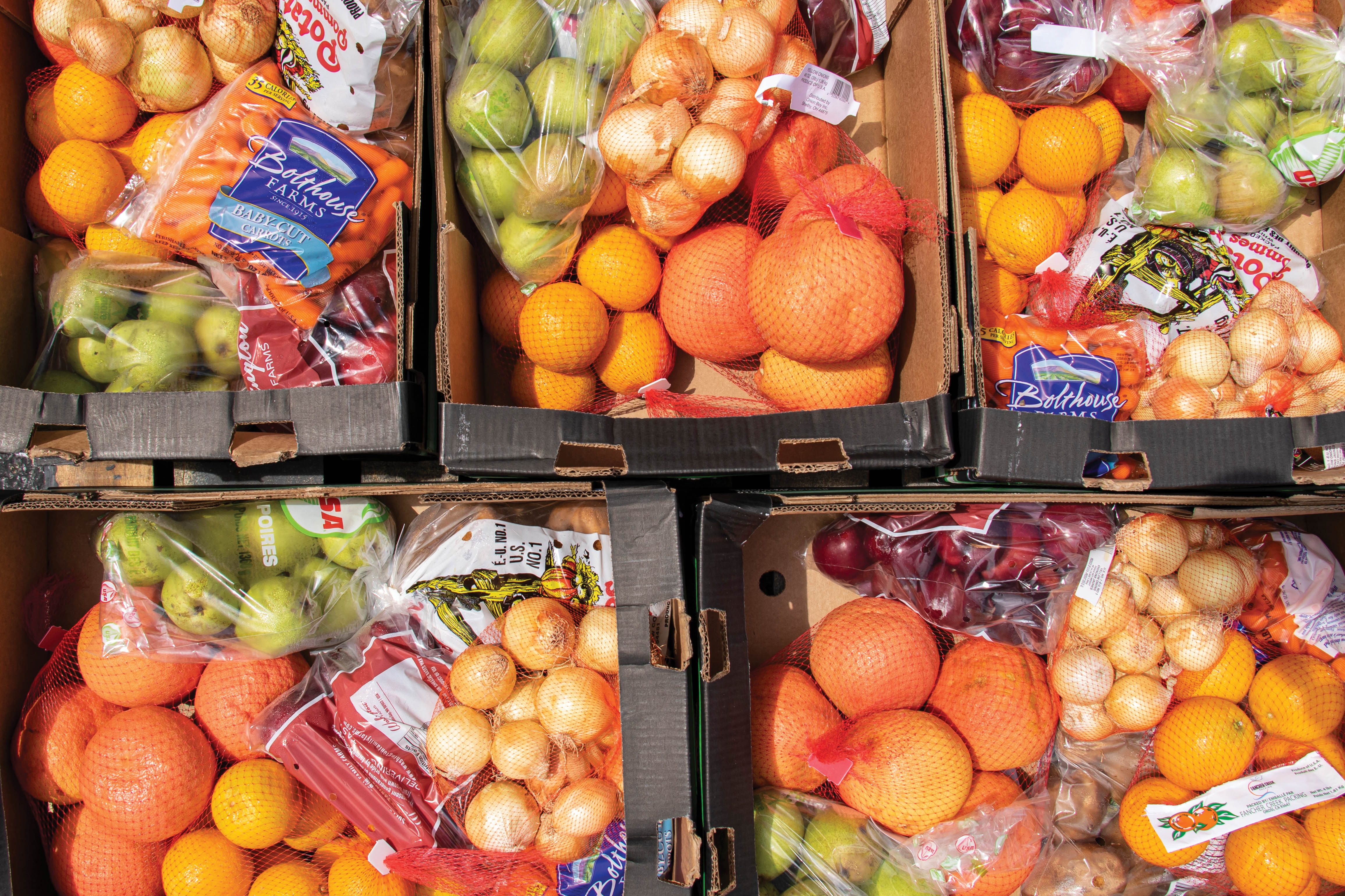 ivera, 19, one of JEE’s founders and its executive director. So, in 2018, Rivera and six other students began talking to local restaurants, grocery stores and farms, convincing them that JEE could take the unused food they’d normally toss out and use it to help people in need.
ivera, 19, one of JEE’s founders and its executive director. So, in 2018, Rivera and six other students began talking to local restaurants, grocery stores and farms, convincing them that JEE could take the unused food they’d normally toss out and use it to help people in need.
Sometimes that’s extra milk from the school cafeteria or a local grocery store. Sometimes it’s bruised peaches or tomatoes from a local farm. Sometimes it’s an oversupply of salad bar staples or cooked rice that a restaurant doesn’t need.
“There’s so much food that isn’t used because it isn’t appealing to consumers,” Rivera said. “But it still has the potential to feed people.”
For the past two years, Rivera and other students – all volunteers – have collected that extra food and distributed it to individuals or to food pantries, mostly in southwest Ohio. That has amounted to 800,000 pounds pounds of rescued food donated to 40,000 families in the tristate area of Ohio, Indiana and Kentucky, JEE Foods estimates.
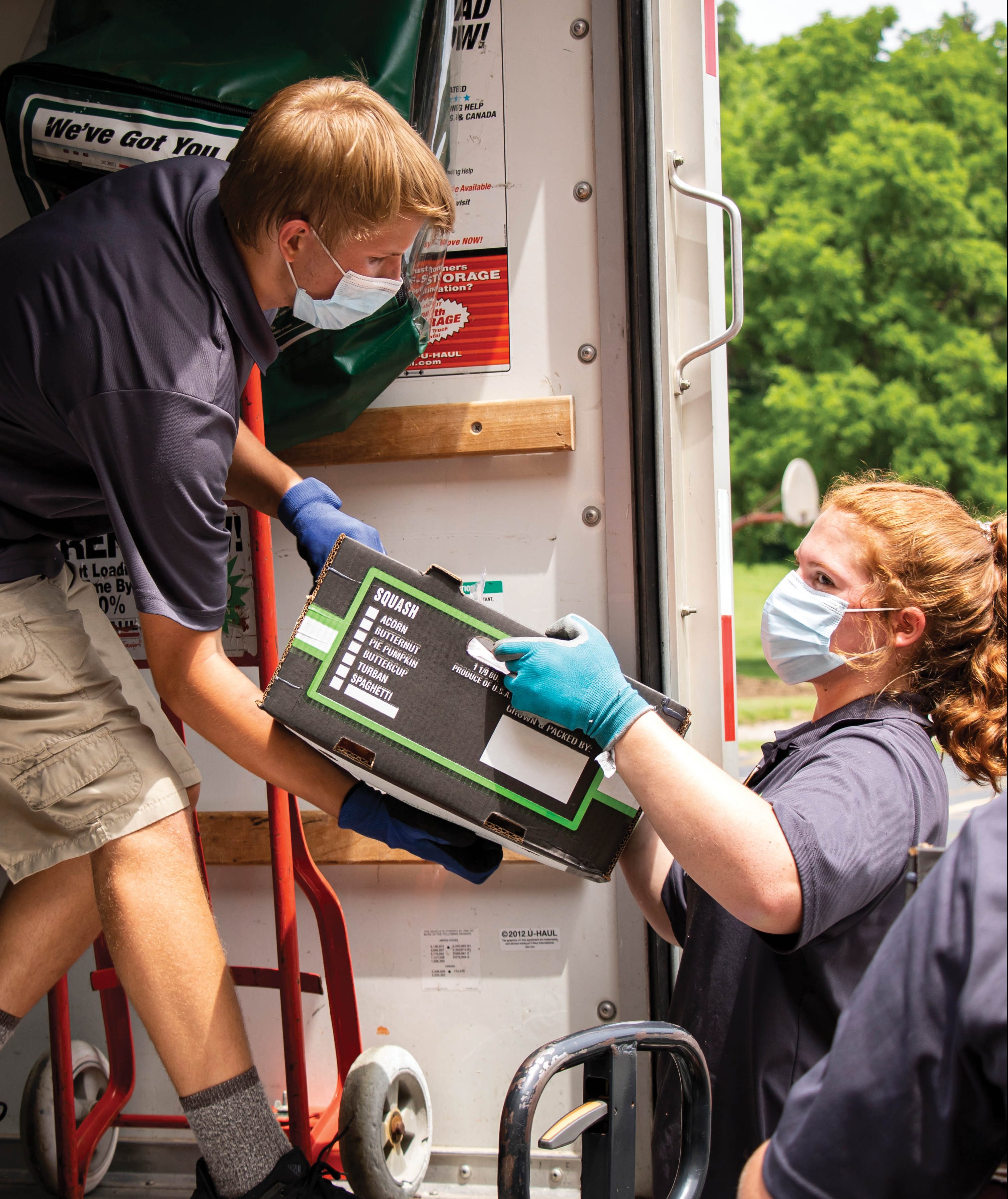 JEE fills a void
JEE fills a voidOne source of fresh produce has been Burwinkel Farms, a 200-acre, family-owned operation in southwest Ohio with roots stretching back to 1918.
“We are so busy that we don’t have the time or the energy to distribute our extra food,” said Kathy Burwinkel Kramer, granddaughter of farm founder Edward “Pappy” Burwinkel. “Having a partnership with JEE can fill in the gaps to get the food to the places in need.”
About 10 years ago, Kramer began searching for ways to use the farm’s extra produce — food like tomatoes, peaches, cucumbers and corn that weren’t attractive enough to sell to consumers.
“The reality is that in farming not everything’s perfect,” Kramer said. “Before, we threw it away, or once in a while someone might pick it up to feed to their animals. But now we create boxes of those items and set them aside for JEE. It’s still going to taste good and have nutritional value.”
Kramer, a Hamilton County Farm Bureau member, estimates their farm donates 50 to 100 pounds of food a week to JEE, which operates out of Ross High School in Butler County, about a mile from their farm.
Fewer than 15 students make up the JEE staff, which also relies on help from about 150 community members, said Levi Grimm, marketing director and a rising high school senior. Grimm works about 40 hours a week at JEE while Rivera, now a sophomore at Ohio State University, has started an offshoot of JEE in Columbus where he now lives.
O’Neill, the company’s board president, said that although his students have created numerous companies during his 19 years as a teacher, JEE is the most successful nonprofit to date.
The opportunity grew out of the Samsung Global Classroom STEAM (Science, Technology, Engineering, Arts and Math) Challenge. Butler Tech was one of four U.S. schools chosen for the challenge and was asked to brainstorm with students at an international school to develop solutions to two United Nations’ sustainability goals. The students presented their plans at the United Nations and O’Neill’s students decided to make their plan a reality.
Grimm said JEE’s efforts expanded this summer when the U.S. Department of Agriculture asked it to participate in its Farmers to Families Food Box program that’s purchasing agricultural products from farmers and distributing it to the needy during the pandemic. That’s meant about 30,000 pounds a week of assorted produce as well as 600 gallons of milk a week that JEE is helping to distribute in addition to its normal food rescues.
The pandemic, said Grimm and Rivera, has made their work even more important.
“We’ve definitely seen an increase in need,” Rivera said.
The nonprofit has big plans for the future. Grimm said they’d eventually like to offer opportunities for those in need to learn job skills and they’re hoping to scale up their food-rescue operations. As more JEE staff members move away after high school, Grimm hopes they’ll start food-rescue programs in other parts of Ohio and the country.
For O’Neill, watching and helping his students help others has cemented his confidence in the power of young people to enact change.
“They saw a problem and wanted to solve that problem,” he said. “These students have proven to have more empathy than any I’ve seen in a long time.”


Members have three ways to apply: contacting a certified agent, calling 833-468-4280 or visiting ohiofarmbureauhealthplans.org.
Read More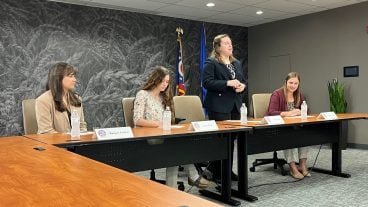
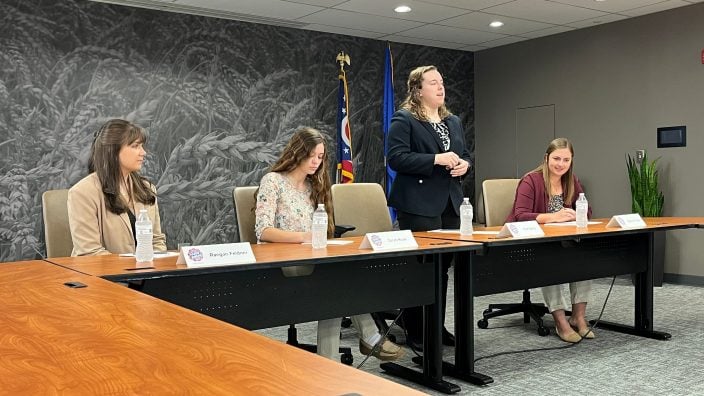
Collegiate Farm Bureau serves as a connection to current industry professionals and equips the next generation with the essential tools and resources needed to excel in their careers.
Read More
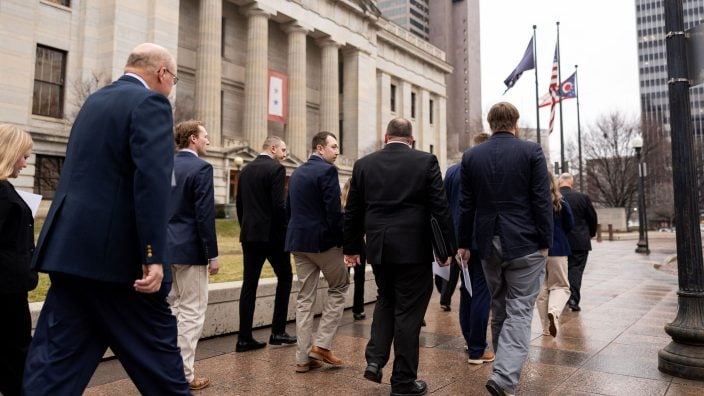
Ohio Farm Bureau members met one-on-one with state legislators and staff to discuss policy priorities impacting Ohio’s farms and rural communities.
Read More

Legacy nutrient deductions enable new farmland owners to claim deductions on the nutrients within the soil on which healthy crops depend.
Read More

Farmers, agribusinesses and community members are encouraged to nominate their local fire departments for Nationwide’s Nominate Your Fire Department Contest through April 30.
Read More

Introduced by Sen. Paula Hicks-Hudson, SB 120 would establish the Urban Farmer Youth Initiative Pilot Program.
Read More

Gases, vapors, and fumes can all create risk. How can we measure and protect ourselves from them?
Read More

The Ohio Farm Bureau’s Young Agricultural Professionals State Committee has named its 2026 leadership and the individuals who will be serving on the state committee for 2026-2028.
Read More

The Ohio Farm Bureau Foundation has multiple scholarships available to Ohio students from rural, suburban and urban communities who are pursuing degrees with a connection to the agricultural industry.
Read More

With 100% bonus depreciation now permanent, farmers can deduct the full cost of a new agricultural building in the year it’s placed in service.
Read More